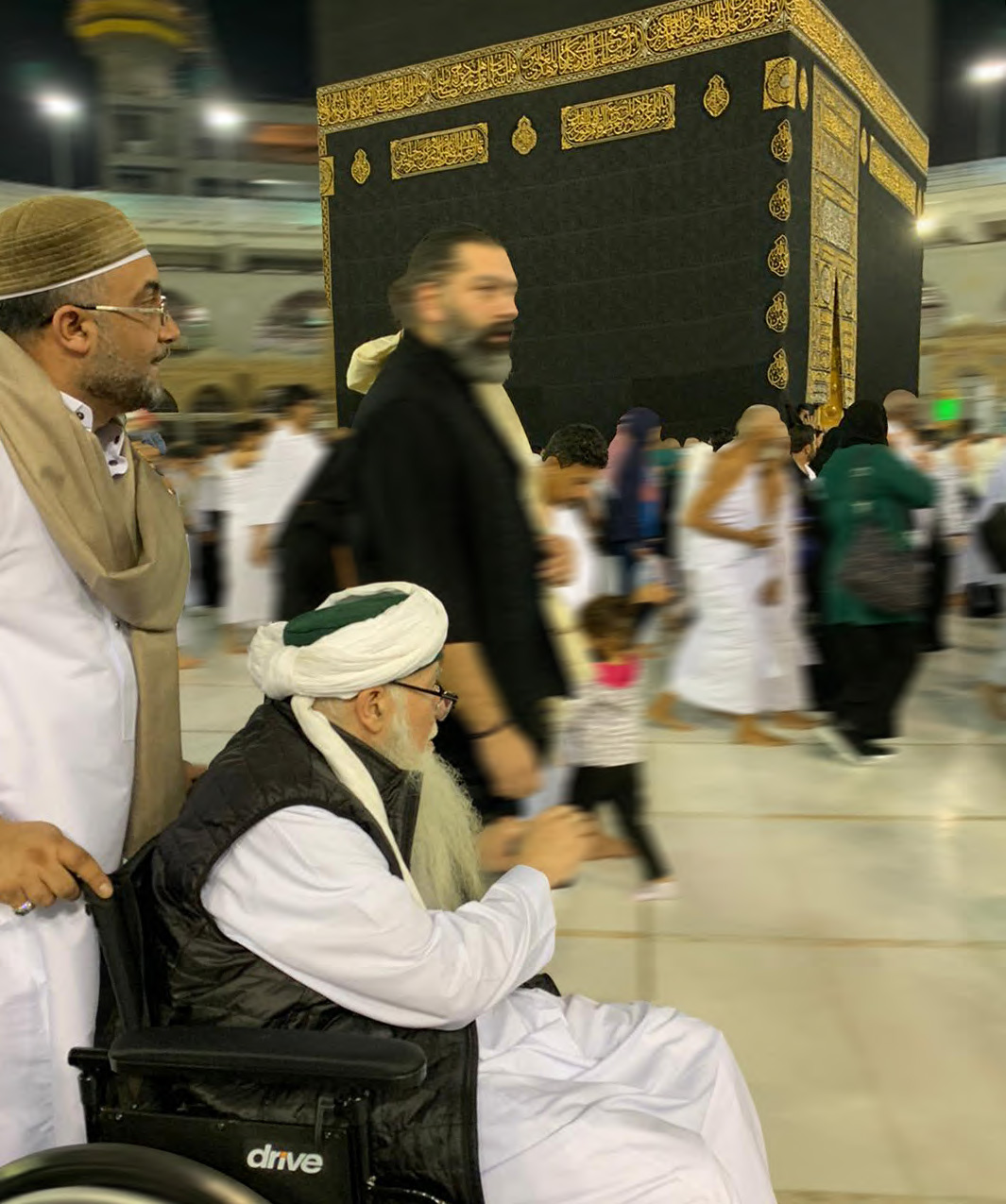A`ūdhu billāhi min ash-Shayţāni ‘r-rajīm
Bismillāhi ‘r-Raħmāni ‘r-Raħīm
Why do we go for Hajj? In order to obey Allah’s (swt) order! That is Hajj! Those who are going there, their intention must be to fulfill what Allah (swt) has ordered them to do. Some people go early, some go late, but all go to stand on the Plain of `Arafat, where:
قال النبي عليه الصلاة والسلام : “الحجُّ عرفةُ.”.
As the Prophet (s) said: “Hajj is `Arafat.”24
So, standing on the Mount of `Arafat means you have accepted to obey Allah (swt)!
Allah (swt) knows Hajj is not easy; it is a difficult journey. However, the explanations of the principles of Hajj in the different schools of thought, from Ħanafī, Mālikī, Shafi`i to Ħanbalī makes it easy. They took from the Ahadith of the Prophet (s) of when he gave his companions (r) instructions to reduce the difficulty of Hajj during the Hajjat al-Wada`, the Farewell Pilgrimage.
عَنْ أَنَسٍ، عَنِ النَّبِيِّ صلى الله عليه وسلم قَالَ “ يَسِّرُوا وَلاَ تُعَسِّرُوا، وَبَشِّرُوا وَلاَ تُنَفِّرُوا”.
The Prophet (s) once said: Make things easy and don’t make them difficult and give good tidings and don’t push people away.”25
Why make things difficult on people? You see their capacity is unable fulfill something, yet you push them to do it? They cannot do it! There are many people today that look at a mistake from you. Why push them so hard? Are we ma`šūm, infallible? No, we are not ma`šūm.
I will relay some examples of how the Prophet (s) made the performance of Hajj easy for people with various needs.
One day Sayyīdinā `Abbās (r)came to the Prophet (s), saying, “Yā Rasūlullāh! I have to give water to the pilgrims in Makkah, but I cannot stay for three days in Mina. What should I do?” The Prophet (s) said, “Yes, you have a good excuse. Throw your stones on the first day of Mina and go back to Makkah or stay in Makkah during the four days of Hajj.”26
In another example, a group of shepherds came to the Prophet (s) and said, “We have to look after the flocks of sheep for Ahlu ‘l-Islam to do zabiha, so we cannot go to Mina.” The Prophet (s) said, “Yes, stay in Makkah.”
One day, someone came to the Prophet (s) and said, “Yā Rasūlullāh! There are too many principles to follow in Islam and it’s becoming very heavy on me. I can’t fulfill all of the requirements.”
For instance, when you go for Hajj they tell you, “You cannot throw pebbles at the Jamarāt, which represent Satan’s temptations, at a certain time (before Zhuhr, for example)—it has to be after Zhuhr.” They ignore the fact that the wise scholars of Islam gave a ruling saying you can do it, because “necessity waives the forbidden.” So, even if it is forbidden, you can do it (if is a must), as Allah (swt) is saying, “I am lifting the prohibition in this instance.” It is a principle in Islam, so you cannot say, “Don’t do it.” With all these millions of people, how many people will die if all of them go at once to stone the Jamarāt? That is why they say, “Do it or delay it, and either is accepted.”
عَنْ عَبْدِ اللَّهِ بْنِ بُسْرٍ، رضى الله عنه أَنَّ رَجُلاً، قَالَ يَا رَسُولَ اللَّهِ إِنَّ شَرَائِعَ الإِسْلاَمِ قَدْ كَثُرَتْ عَلَىَّ فَأَخْبِرْنِي بِشَيْءٍ أَتَشَبَّثُ بِهِ . قَالَ ” لاَ يَزَالُ لِسَانُكَ رَطْبًا مِنْ ذِكْرِ اللَّهِ ”
A man said, “Yā Rasūlullāh, there are too many Islamic rules, and I cannot do all of them. Give me something easy to hold onto!” The Prophet (s) said, “Keep your tongue moist with dhikrullāh.”27
It means, “Remember Allah (swt) by keeping your tongue moving in dhikrullāh,” which means to not backbite. You cannot stop making sins by backbiting? Then make your tongue say, “Allah!” or “lā ilāha illa ’Llāh!” or whatever tasbīħ you want.
These are examples to show that Hajj does not have to be difficult. However it is also not so easy for a different reason: we are moving towards the Last Days, because the Prophet (s) said:
القابض على دينه كالقابض على الجمر
The one who holds fast to the religion (in this time) is like one holding a burning coal in their hand.28
REFERENCES
24 Sunan at-Tirmidhi.
25 Sahih Bukhārī.
26 Bukhārī.
27 Tirmidhi.
28 Tirmidhi.
 Excerpted from: MAKKAN OPENINGS: A Pilgrim’s Guide to the Divine Secrets
Excerpted from: MAKKAN OPENINGS: A Pilgrim’s Guide to the Divine Secrets



